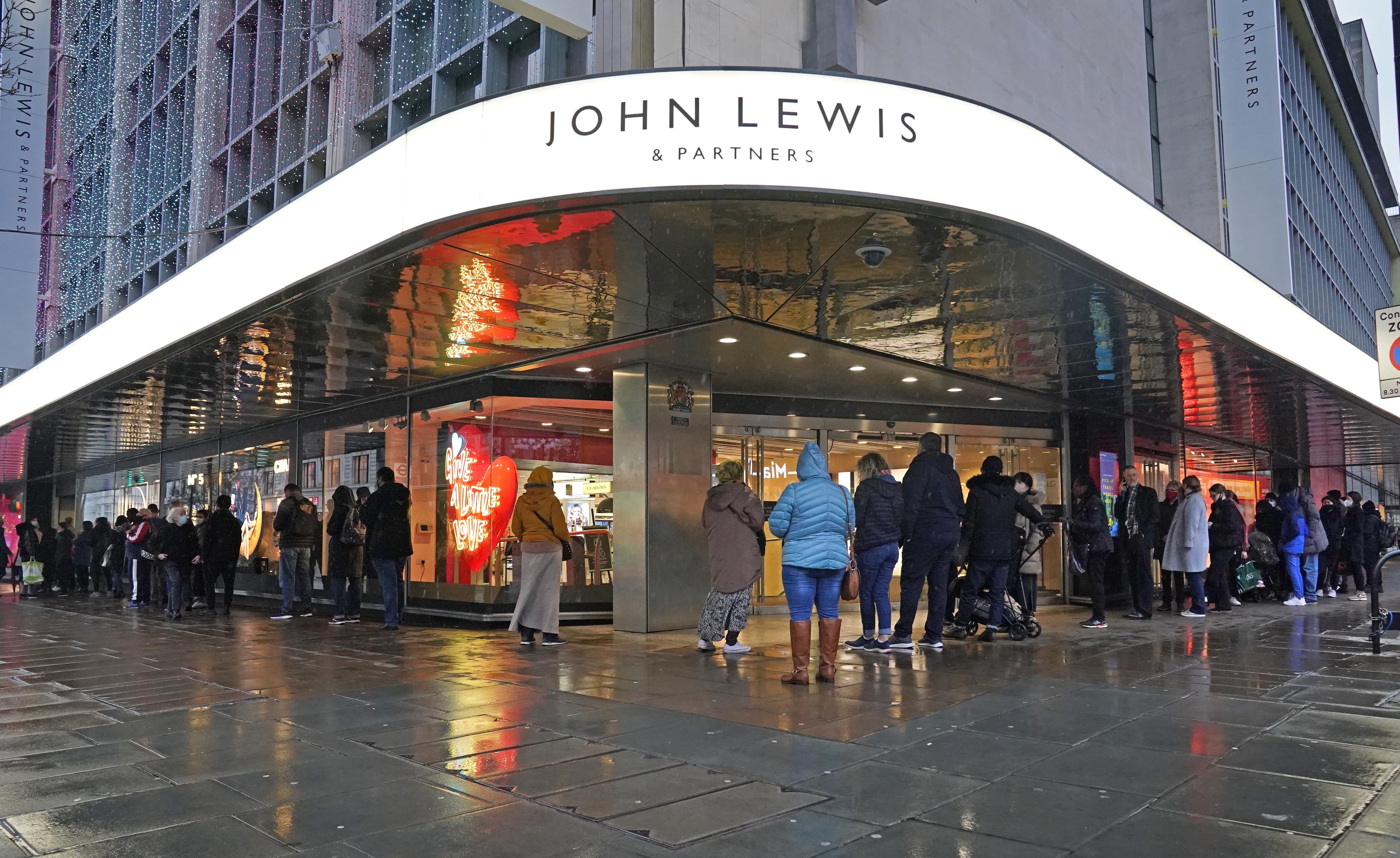Employers are navigating a Covid minefield – but putting more thought into it than government
John Lewis says unvaccinated staff will receive full sick pay if required to self-isolate. Other companies have taken a radically different view, writes James Moore


We’re conscious that some businesses have changed their sick pay policy with regard to unvaccinated employees in some Covid-19-related absence scenarios. At the John Lewis Partnership we’re not going to make any change of this type,” Andrew Murphy, its executive director of operations, posted on LinkedIn.
The risk with such a missive – whose publication may have been governed by it being issued on a social network focused on business/employment – is obvious. If read wrongly, it could lead to John Lewis being positioned as the anti-vaxxer’s favourite retailer. This is not somewhere the partnership, which stresses that it is pro-vaccine, probably wants to be.
Hence the next paragraph: “We’re hugely supportive of the UK vaccination programme (we give ‘free’ time off to all Partners to get their vaccination and we’ve provided our Bracknell sports hall to the NHS as a vaccination centre since the very start of the jab roll-out, providing 160,000 jabs).”
Murphy then went on to say: “We just don’t believe it’s right to create a link between a Partner’s vaccination status and the pay they receive.”
The post is carefully considered and carefully written. It is nuanced. Trouble is, there’s not so much room for nuance in a world made hyper-polarised by social media echo chambers.
Murphy may be gratified to learn that the comments on the piece are almost universally supportive. From reading them, that support seems to be motivated by the feeling that the policy is the right thing to do rather than from any vaccine-related sentiment.
The policy could be said to encourage unvaccinated staff to do the right thing, to isolate if they have a close contact, because they will face no penalty for doing so.
But that doesn’t mean that retailers like Morrisons, Next and Ikea, all of which are among the “some businesses” referred to by Murphy in his opening paragraphs, are necessarily wrong.
Take Morrisons, which is a food producer as well as a grocery business and faced serious challenges as a result of the high levels of staff absence it experienced during last year’s infamous “pingdemic”.
It was partly as a result of this that it said it would only pay the government minimum statutory sick pay – which amounts to less than £100 a week – to those required to self-isolate through a close contact, although I’m told unvaccinated staff sick with Covid still qualify for full benefits.
Government guidelines draw a clear distinction between the two groups (for obvious reasons). If you choose not to take a safe and effective vaccine, which will protect others as well as yourself, isn’t an employer within their rights to say, we’re fine with that but you live with the consequences?
Morrisons stance is also less restrictive than those of the employers which have said they don’t want unvaccinated staff on the premises at all.
Healthcare and care home staff, meanwhile, are required to be vaccinated. For them, it really is no jab, no job.
The latter is far more common in places like the US than it is in the UK. Across the Atlantic, no jab, no job, or policies that amount to it, isn’t uncommon. While president Joe Biden might have been stymied in his attempts to impose federal mandates by the US courts, big employers have taken their own view. There will inevitably be lawsuits. There will be lawsuits here too.
One of the companies to have adopted a hardline approach to the unvaccinated is United Airlines. CEO Scott Kirby has, however, argued that his company’s vaccination requirement has saved lives. Based on the company’s experience before and after its imposition, he put the number at eight to 10 lives. Think about what that means for a moment and you’ll see that Kirby’s argument is quite powerful. And if you’re clinically vulnerable and have to fly? Well, United would be as good a carrier as any.
Amid the loud calls for bodily autonomy, the rights of people vulnerable to the virus have sometimes been drowned out. They ought to include the right to be free from the risk of infection, and to be able to work and participate in society without being put at undue risk. Kirby gets it. The British government? Not so much, given the scandalous lack of concern it appears to have for this group, with its dropping of mask mandates (among other things).
Back to employers, where the problem is that there is no playback, and there is no decision or policy that you can say is absolutely correct. They all carry drawbacks, sometimes legal, sometimes moral/ethical, sometimes both.
That some at least appear to be thinking carefully about which road to go down is welcome, and again draws attention to the lack of thought from the British government, which currently appears to be making policy not on what’s best but on what it thinks is the best way to save its leader’s skin.






Join our commenting forum
Join thought-provoking conversations, follow other Independent readers and see their replies
Comments